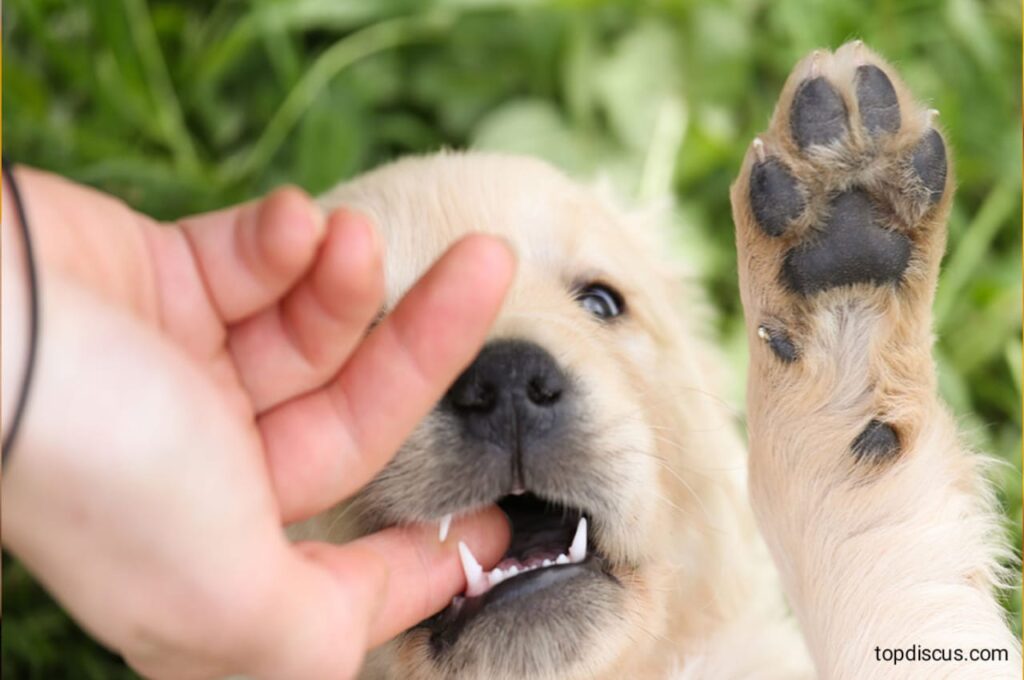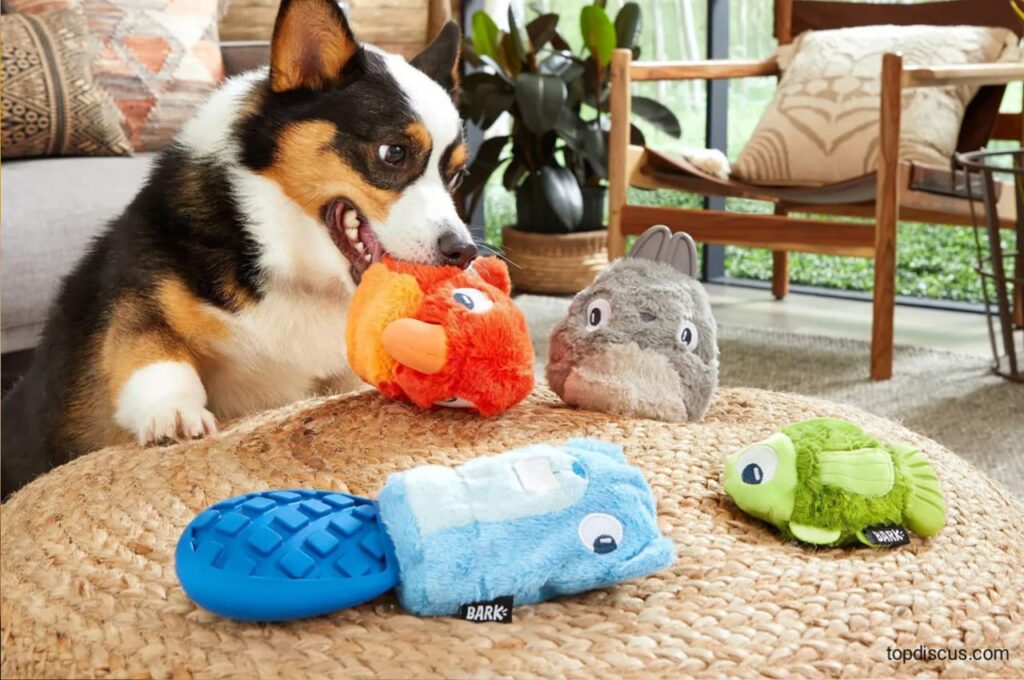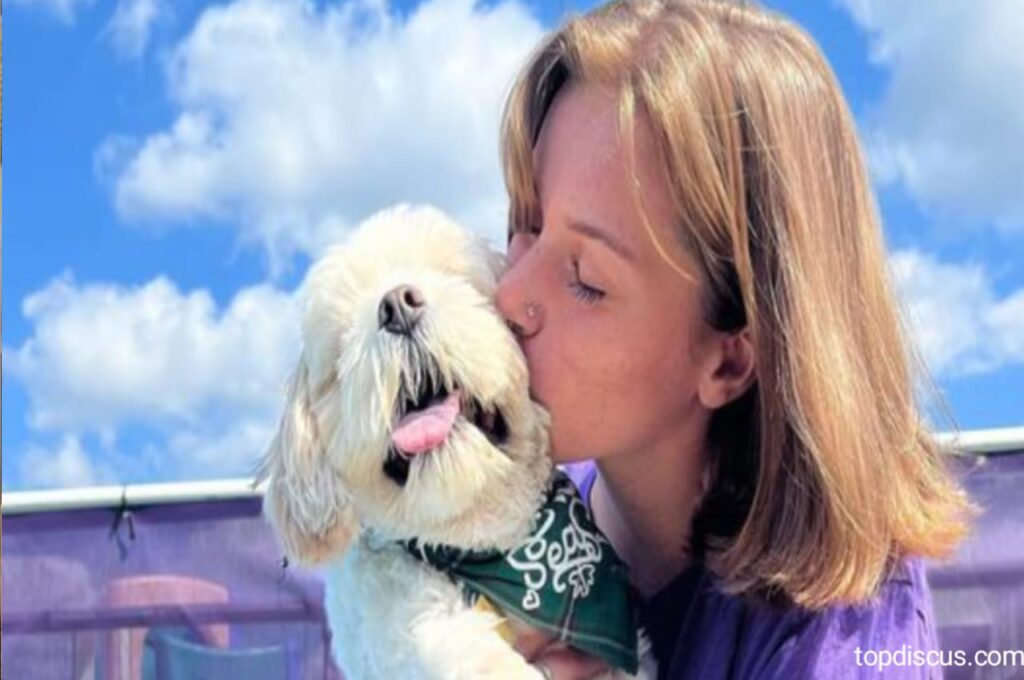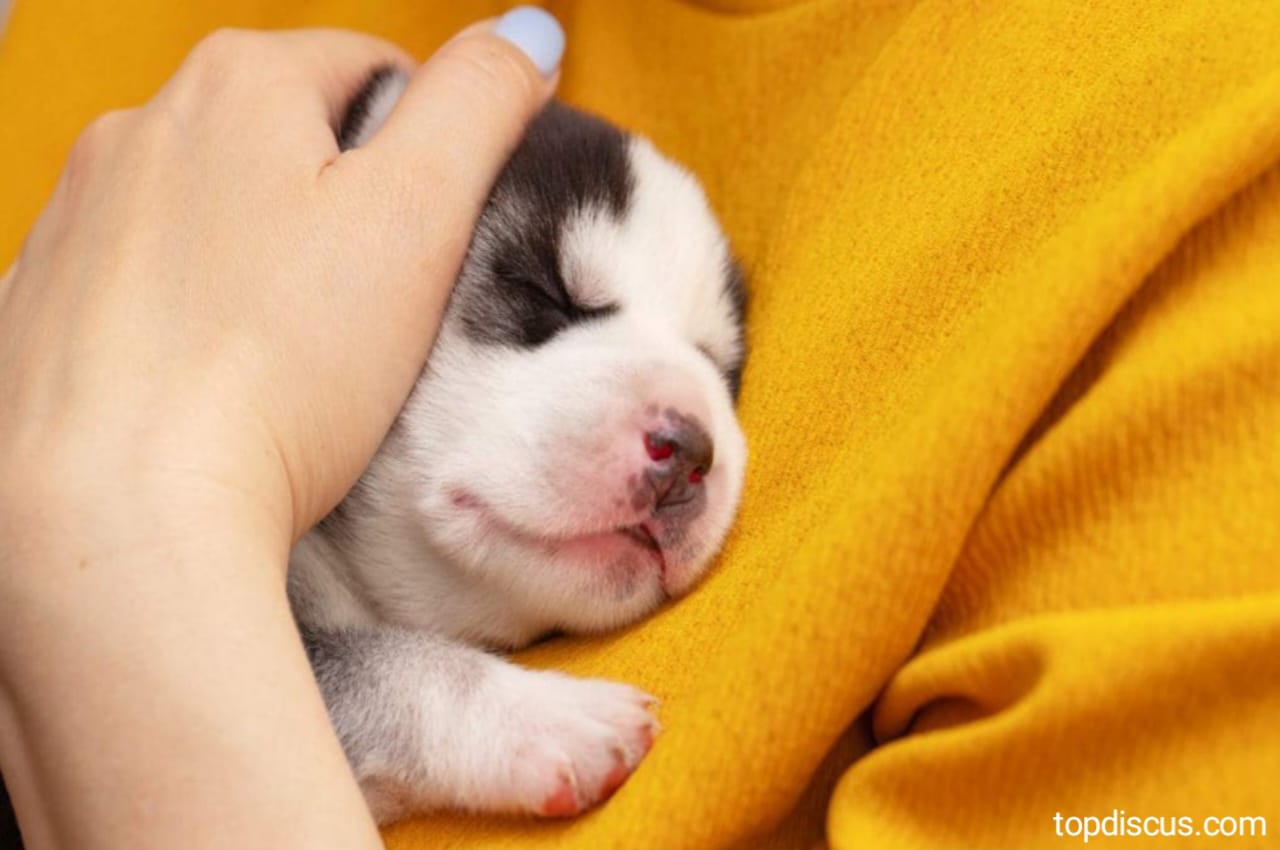In this blog post we will guide you on how to train a puppy not to bite, we’ll equip you with effective techniques and invaluable insights for turning those needle-like nibbles into gentle licks. Get ready to embark on an exciting journey towards teaching your pup some essential manners and fostering harmony within your household.
Ah, puppies – those adorable bundles of fur and boundless energy. As you welcome a furry friend into your home, one thing becomes abundantly clear: puppies love to explore the world with their mouths! While those tiny teeth may be irresistibly cute at first, their playful nips can quickly turn into sharp bites that leave you yelping in pain
Why do Puppies Bite?
 Puppies, much like human babies, explore the world through their mouths. It’s an instinct for them to use their teeth as they navigate their surroundings and interact with others. From an early age, biting is a way for puppies to communicate and express themselves.
Puppies, much like human babies, explore the world through their mouths. It’s an instinct for them to use their teeth as they navigate their surroundings and interact with others. From an early age, biting is a way for puppies to communicate and express themselves.
One reason puppies may bite is due to teething. Just like human infants, dogs go through a teething phase where their baby teeth are replaced by adult teeth. This process can be uncomfortable and itchy, leading the puppy to seek relief by chewing on anything they can sink their tiny teeth into. Another reason for puppy biting is playfulness. Puppies have boundless energy and love engaging in rough-and-tumble play sessions. Biting during playtime is often an attempt at grabbing attention or initiating interaction.
Additionally, fear or anxiety can trigger biting behavior in puppies. When faced with unfamiliar situations or overwhelming stimuli, some pups resort to using their teeth as a defense mechanism. Understanding why puppies bite allows us to approach training from an empathetic standpoint while addressing the root causes of this behavior. In the following sections, we’ll delve deeper into effective techniques that will help you teach your pup some valuable lessons about appropriate biting etiquette! Click Here to Visit Our Homepage.
Positive Reinforcement Training Techniques:
Positive reinforcement training techniques are a highly effective and humane way to teach your puppy not to bite. Instead of using force or punishment, positive reinforcement focuses on rewarding good behavior. Here are some key techniques that can help you train your puppy:
-
Use Treats
-
Redirect their Attention
-
Encourage Calmness
-
Be Consistent
-
Patience is Key
The Importance of Teaching Bite Inhibition:
One important aspect of puppy training is teaching them bite inhibition. Puppies naturally explore the world with their mouths, and biting is a normal behavior for them. However, it’s essential to teach them how to control the force of their bites so they don’t cause harm as adults.
Bite inhibition refers to a puppy’s ability to regulate the pressure of their bite. This skill is crucial because even though we want our puppies to stop biting altogether, accidents can happen, and having good bite inhibition prevents serious injuries. To teach your puppy bite inhibition, start by letting them play with other puppies or dogs who have learned this skill. When your puppy bites too hard during playtime, yelp loudly and withdraw attention momentarily. This mimics how other puppies would react when bitten too hard.
Additionally, offers appropriate chew toys that are specifically designed for teething puppies. These toys help redirect their chewing instincts away from hands and furniture. Socialization plays a vital role in teaching bite inhibition as well. Expose your pup to various people and situations so they learn appropriate behavior around different individuals.
Remember that consistency is key in training your puppy not to bite excessively or forcefully. Reinforce positive behavior with treats and praise consistently whenever they exhibit self-control during play sessions. By teaching your puppy proper etiquette through positive reinforcement techniques like these while providing appropriate outlets for chewing, you can help develop excellent bite inhibition skills in no time! How to train a Puppy not to Bite.
Consistency is Key:
Consistency is key when it comes to creating a routine for your puppy. Dogs thrive on structure and predictability, so establishing a regular schedule will help them understand what is expected of them and reduce their tendency to bite.
Start by setting specific times for meals, walks, playtime, and training sessions. This will not only provide your puppy with the necessary physical exercise but also mental stimulation that can redirect their urge to bite. During playtime or training sessions, make sure to reinforce good behavior using positive reinforcement techniques. Reward your puppy with treats or praise when they exhibit appropriate chewing behavior or follow commands without resorting to biting.
It’s important to maintain this consistent approach throughout the day and across all family members. Everyone in the household should be on board with enforcing the same rules and boundaries. Inconsistency can confuse your puppy and make it harder for them to learn not to bite. In addition, providing appropriate chew toys can help redirect your puppy’s need for biting into something more suitable. Make sure you have a variety of toys that are specifically designed for teething puppies available at all times.
Socialization is another crucial aspect of creating a routine that discourages biting. Regularly exposing your puppy to different people, animals, sounds, and environments from an early age will help them become familiar with new situations and reduce anxiety-related behaviors like biting. While consistency is important in training your pup not to bite, setbacks are bound to happen along the way. Be patient and understanding during these moments; remember that learning takes time and effort on both ends.
If despite your best efforts you find yourself unable to curb your puppy’s biting behavior or if their aggression seems excessive or unpredictable, it may be time to seek professional help from a dog trainer or animal behaviorist who specializes in working with puppies. How to train a Puppy not to Bite.
Providing Appropriate Chew Toys:
 Providing appropriate chew toys is essential to training your puppy not to bite. Puppies have an instinct to chew, so it’s important to redirect their biting behavior to something more suitable. By offering them a variety of safe and durable chew toys, you can help satisfy their need to gnaw and prevent them from using your hands or furniture as targets.
Providing appropriate chew toys is essential to training your puppy not to bite. Puppies have an instinct to chew, so it’s important to redirect their biting behavior to something more suitable. By offering them a variety of safe and durable chew toys, you can help satisfy their need to gnaw and prevent them from using your hands or furniture as targets.
When selecting chew toys for your puppy, opt for ones that are specifically designed for teething puppies. Look for options made with sturdy materials that are resistant to sharp teeth and won’t easily break apart. Avoid small or soft toys that could be swallowed or torn apart easily, as this could pose a choking hazard. Introduce the chew toy to your puppy by presenting it excitingly and engagingly. Encourage them to play with the toy by making it seem fun and rewarding. You can smear some peanut butter on the toy or fill it with treats to make it even more enticing.
Rotate the selection of chew toys regularly so that your puppy doesn’t get bored or lose interest in them. This will keep their attention focused on their designated chewing items rather than seeking out inappropriate alternatives. Remember, patience is key when teaching bite inhibition by providing appropriate chew toys. It may take time for your puppy to learn what they can bite on and what they should avoid. Be consistent in redirecting their biting behavior towards the approved items, praising them when they choose these instead of other objects.
By supplying your puppy with suitable chew toys and guiding them towards these choices consistently, you will help promote healthy dental habits while also preventing destructive behaviors associated with inappropriate chewing.
Patience and Understanding:
 Patience and understanding are crucial when it comes to training a puppy not to bite. It’s important to remember that puppies are still learning and developing, so setbacks are bound to happen along the way.
Patience and understanding are crucial when it comes to training a puppy not to bite. It’s important to remember that puppies are still learning and developing, so setbacks are bound to happen along the way.
When your puppy does have a setback and starts biting again, it can be frustrating. However, reacting with frustration or anger will only make things worse. Instead, take a deep breath and remind yourself that this is all part of the learning process. One effective strategy for dealing with setbacks is redirection. If your puppy starts biting you or something they shouldn’t, calmly redirect their attention towards an appropriate chew toy. This teaches them what is acceptable to bite on and helps reinforce positive behavior.
Consistency is key to overcoming setbacks. Stick to your training techniques and remain patient even if progress seems slow. It’s important to keep in mind that every puppy learns at their own pace. It’s also important to consider any underlying reasons for the biting behavior. Is your puppy teething? Are they feeling anxious or scared? Understanding these factors can help you address the root cause of the biting and find appropriate solutions.
Above all else, be patient with yourself as well. Training a puppy takes time and effort but remember that every small step forward counts towards success in the long run. How to train a Puppy not to Bite.
When to seek professional help
Sometimes, despite our best efforts, we may find that our puppy’s biting behavior isn’t improving. In these cases, it’s important to consider seeking professional help. A qualified dog trainer or animal behaviorist can provide valuable guidance and support customized to your specific situation.
One telltale sign that professional help may be necessary is if the biting becomes aggressive. If your puppy is growling, baring its teeth, or causing injury with their bites, it’s crucial to reach out for assistance immediately. Another indicator is if you’ve tried various training techniques without any noticeable progress. This could signal a deeper issue that requires expert intervention. A professional can assess the situation and develop a tailored plan based on your puppy’s unique needs.
Additionally, seeking professional help is advisable when dealing with severe anxiety or fear-related behaviors in your puppy. These issues often require specialized knowledge and experience to address effectively.
Remember, there’s no shame in asking for assistance when it comes to raising a well-behaved and happy pup! Seeking professional help demonstrates your commitment as a responsible pet owner who wants what’s best for their furry friend. So don’t hesitate to consult with an expert who can offer insight into how to train your puppy not to bite properly and safely manage any underlying behavioral challenges. For More Information Click Here.
